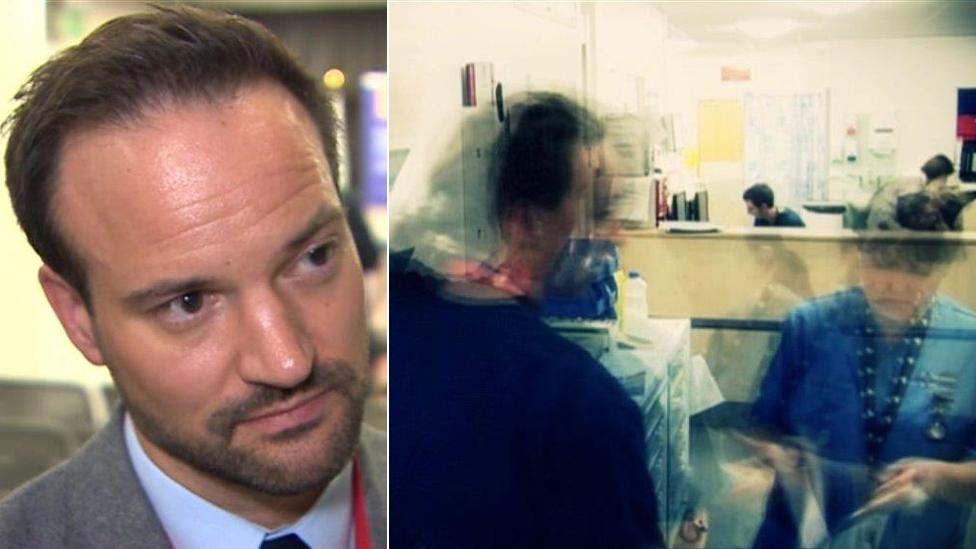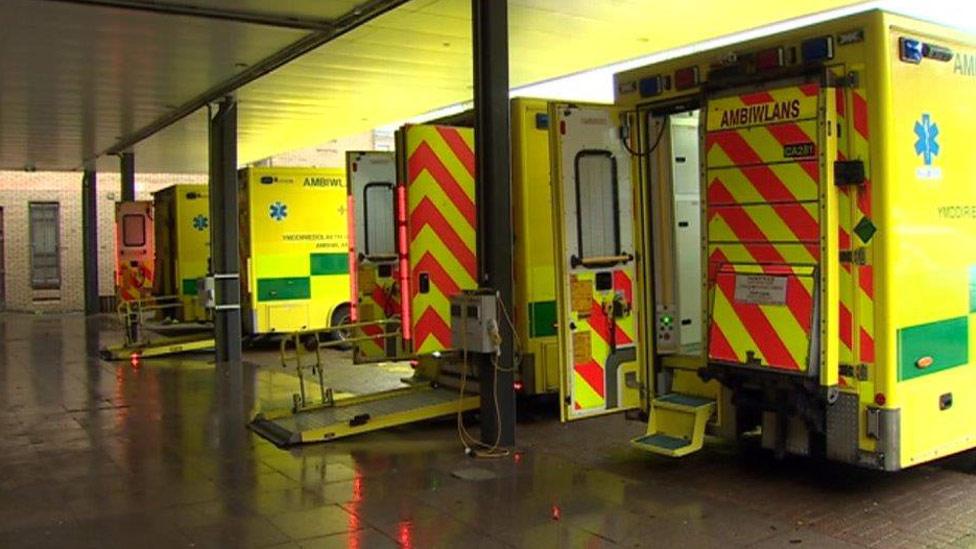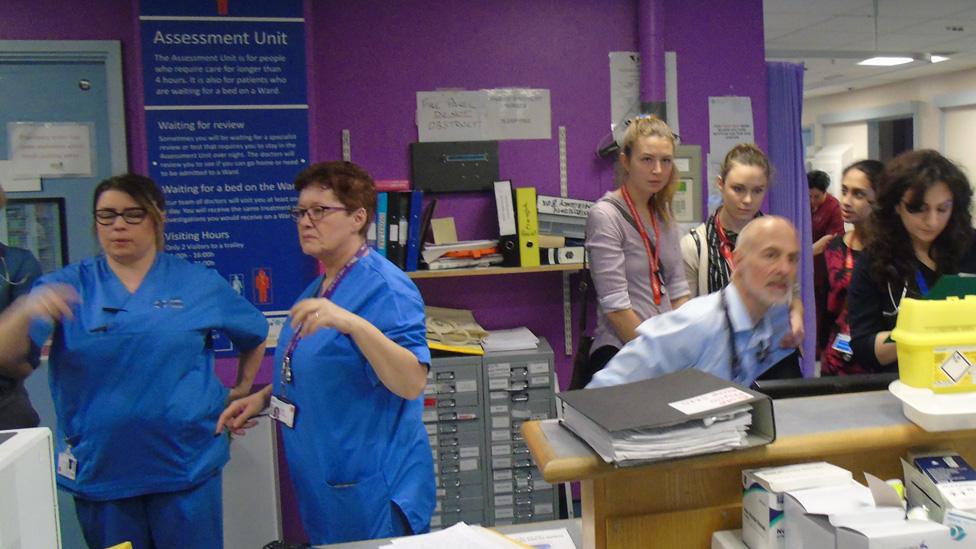£35m NHS Wales fund to ease winter pressure
- Published

John Palmer said the NHS could not operate without working with other organisations
At the height of the summer heatwave, hospital managers in the south Wales valleys began thinking about how best to cope with the extra pressures expected over the winter months.
The NHS has to start planning, as early as possible, for its traditionally busiest time of the year.
At Cwm Taf health board - which runs two general hospitals - the last winter peak season lasted 10 weeks and was "incredibly challenging".
New chief operating officer John Palmer was only four days into his new job when Royal Glamorgan Hospital, near Talbot Green, had its busiest day on record.
And the problems were not confined to one hospital.
"We were expecting five to six additional patients a day - we had planned for that. We had as many as 32 patients a day from January onwards," he said.
"I was amazed how NHS staff held it together but partnerships are absolutely essential and there's no way the health service can deliver what it does by itself - you need local authorities, police and fire services and a broad range of voluntary organisations, the Red Cross, St John's and others."
Despite the numbers of patients who arrived at the A&E department, the health board managed to see between 80-90% of patients within a four hour target.
Numbers of elderly patients, with complex conditions and flu and chest infections, means pressures on hospital beds and working with GPs and social care providers is key.

What else is happening across the NHS this winter?
£35m in extra Welsh Government funding will include £5m to critical care services, £10m to social care and £20m for the NHS to work on programmes with its partners
The Red Cross has been given funding from a £4m pot for 50 staff and volunteers to work at seven A&E units across Wales, offering support to elderly patients - from keeping them company, escorting them between departments and helping to transport them home after their treatment. They will also help them settle in with follow-up checks afterwards
Welsh Ambulance Service is looking to extend a pilot of 10 advanced paramedic practitioners in north Wales. There will be 10 more in south and east Wales and 10 in central and west Wales. They've had specialist training to examine patients and assess their needs to a higher level. Had conventional paramedics been sent, 70% of patients would have ended up being taken to hospital, but this pilot has seen only 30% needing to go to hospital
Mental health liaison nurses working in the ambulance service control will help callers in crisis
Choose Pharmacy campaign to highlight the types of treatment which can be available outside GP surgeries. There is a "triage and treat" approach on the west Wales coast, with pharmacists like Richard Evans in Newport, Pembrokeshire, also able to treat patients for minor injuries

This winter, to help ease pressures, Cwm Taf health board and its partners will again try to spot the signs early.
Last winter, they targeted 150 vulnerable elderly patients, the ones thought to be at particular risk, with extra support and therapy. The Stay Well At Home, external programme managed to:
Reduce the number of hospital admissions for this group by 80%
Reduce the number of GP appointments by 65%
Cut the need for out-of-hours GP appointments by 90%
The health board will receive £1.78m extra this year, with Rhondda Cynon Taf social services getting a £1m share of that to deliver these community healthcare projects. There will be investment in more doctors and nurses.
As for those coming through out-of-hours GP services, out of 4,500 patients who used it, only 3.5% ended up in hospital.
"You can't over-stress how important that was to our patient flow," said Mr Palmer.
Health Secretary Vaughan Gething said health boards had been asked to look particularly at the "crucial" 18-day holiday period between 21 December and 6 January.
"There is no reason to think that this winter will be any less challenging than previous years," he told AMs.
"However, the plans we have come from partnership between our NHS, local authorities, the third sector and government. The combination of local and national actions should provide increased resilience against the inevitable pressures that will come over the winter months."
- Published18 January 2018
